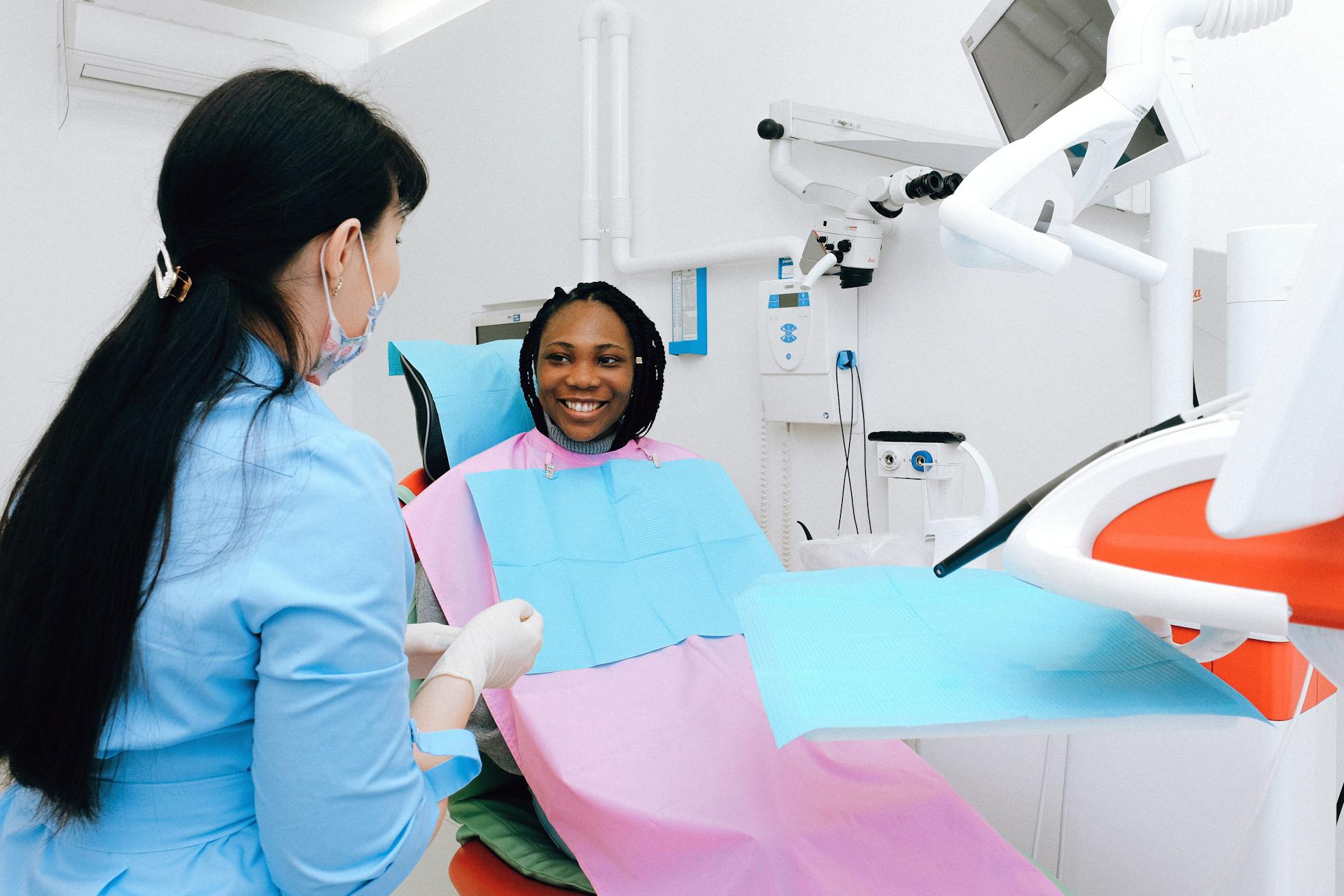
If you're an avid runner, there's a good chance that at some point in time, you've felt pain in your hips while running. This is actually quite common and can have various causes.
One of the main reasons why your hips hurt when you run could be due to an imbalance in muscle strength. Weak hip muscles can make it harder for your body to absorb the shock that comes with each foot strike during running and cause pain in the muscles surrounding them. Strengthening these muscles can help reduce discomfort when running.
Another potential reason may be incorrect form or posture while running which leads to increased stress on certain areas of your hips such as the lower back or glutes. Taking care to maintain proper form is essential for reducing hip pain as it helps evenly distribute impact forces throughout your body as you move forward, instead of concentrating them all on a single area like your hips.
Finally, chronic tension or stiffness from prolonged sitting could also be causing hip pain by leading to tightness in certain muscles and tissues around the joint itself which becomes exacerbated by high-impact exercise like running. Taking regular breaks from sitting throughout the day and making sure you incorporate stretching exercises into your daily routine may help reduce this type of discomfort when hitting the trails!
Discover more: Hip Fracture
Why does my lower back hurt when I run?
If you’ve ever asked yourself why your lower back hurts when you run, then you’re not alone. Many people experience lower back pain while running and it can be caused by a number of different factors.
One common cause of lower back pain is poor posture and body mechanics. Running requires endurance and proper technique in order to maintain optimum form for the duration of your run. If your posture isn’t correct or if your gait is off, it can negatively affect the muscles, joints and ligaments in the area - leading to discomfort or even injury over time.
Another potential cause of lower back pain while running could be inadequate stretching prior to exercise. Without properly warming up and stretching out, there is a greater risk of muscle strains which often occur near the spine or hips - both areas that can cause issues if left untreated. Additionally, some may experience an increase in tightness in their hip flexors and surrounding muscles due to long-distance running (or any activity where legs are used repetitively). This tightness can put tension on the spine as well as nerves in the area which leads to discomfort or even localized pain during movement.
Finally, it's also important to consider common conditions such as sciatica that may pertain directly from pre-existing medical issues like herniated discs or bulging discs. In these cases, usually additional medical care might be needed alongside preventative measures such as taking breaks before engaging in strenuous physical activities like running for long periods of time etc..
While there are many potential causes of lower back pain from running, paying attention to proper form during runs coupled with regular stretching before hand (and an occasional day off) could help tremendously with reducing any discomfort experienced while doing this type exercise...
Expand your knowledge: How Long Can You Run a Microwave?
Why does my knee hurt when I run?
If you’re experiencing knee pain while running, it could be the result of a number of different factors. Whether it’s from training errors, structural abnormalities or chronic conditions, understanding what exactly is causing your knee pain can help you find ways to alleviate it.
The most common cause of knee pain when running is overuse or overexertion. This often occurs for those who recently began a running routine or significantly increased their traditional one, and the body has not had the opportunity to properly toughen up and adjust yet. Repetitive strain injuries such as patellofemoral pain syndrome (runner’s knee) or iliotibial band syndrome (ITBS) can also occur if incorrect form is used while running. Both of these conditions involve inflammation in tendons and tissue around the knee joint due to excessive friction between them. Additionally, an underlying medical condition that affects your knees such as meniscus tear, arthritis or bursitis may be causing your discomfort.
If you suspect that any of these factors are behind your knee pain when running, don’t push through the discomfort— instead consult with a healthcare professional for diagnosis and proper treatment steps! In any case lowering intensity with walking breaks may offer temporary relief from symptoms before permanent adjustments can be made via strengthening exercises targeting imbalances in muscle structure etc..
Explore further: Knee Replacements
Why does my ankle hurt when I run?
Ankle pain when running is a common complaint, and can be caused by a variety of reasons. In some cases, the pain may be transient and caused by working out too hard or not having the correct running form. In other more serious cases, ankle pain when running can be due to an underlying injury such as tendonitis, shin splints, stress fractures or bursitis. It can also indicate the presence of arthritis in the joints of your ankles.
The best way to figure out why your ankle hurts when you run is to schedule an appointment with your doctor or physical therapist so they can do a full evaluation. An evaluation will include checking for tenderness in any specific area on your ankle as well as looking for any structural issues such as misalignment or instability. The evaluation may also include x-rays that would enable your physician to check for signs of wear and tear or potential fractures and diagnose potential causes of the ankle pain you are experiencing while running.
After diagnosis a treatment plan may consist of stretching exercises which would help strengthen muscles around the joint and increase flexibility; ice/cold therapy which relieves inflammation; wrapping it with an Ace bandage which minimizes swelling; wearing orthotics which reduce pressure on certain areas linked with your foot injury; taking nonsteroidal anti-inflammatory drugs (NSAIDs) to reduce swelling; reduction on intense workouts that focused on stressing the joints during ankle movements; implementing low impact activities like swimming versus higher impact ones like running: lastly if all previous treatments fail consulting with a surgeon who could possibly provide corrective surgery depending on level off seriousness off issue at hand in order make it possible for you return safely before returning back jogging/running again.
Taking swift action after experiencing any uncomfortable sensations in either one off both ankles while jogging/running is something one should do without fail there by helping oneself avoid further injuries down road.
Suggestion: Does Getting Braces off Hurt?
Why does my shin hurt when I run?
Shin pain or "shin splints" is a common problem that many runners experience from time to time. In most cases, shin pain can be attributed to an overuse of the muscles and tendons that surround the tibia, or shin bone. This can occur when you are transitioning from walking to running, increasing the intensity or duration of your runs too quickly, biomechanical deficiencies such as incorrect foot mechanics or poor core stability, running on hard surfaces such as concrete, dirt trails with sharp turns/changes in elevation (including stairs), inadequate warm-up before a run and shoes that lack support/cushioning.
To reduce your chances of developing shin pain while running:.
1) Take smaller strides: A longer stride creates more force on your shins with each step then short steps do.
2) Stretch regularly: Stretching out your calves and Achilles heel prior to any vigorous activity can help reduce tension on these muscles which will transfer off of your shins. Additionally try foam rolling for increased flexibility in these areas for long lasting relief!
3) Increase cadence/speed slowly: When starting out running it's important not to increase either speed or distance of your runs too quickly as this could lead to additional strain on those areas around your shins causing them tremendous amounts of discomfort.
4) Wear proper footwear during workouts: Make sure that you're wearing shoes properly fitted for YOU with good arch support and cushioning in order prevent any additional strain on the areas around ankles ankles & feet which can transfer up into regions associated with shins. Altering even minor elements within these components may help reduce some overuse symptoms by shifting weight differently across various parts of lower body section - especially whenever performing high impact activities like runningbe sure they have good quality cushioning & arch support fitted LEVEL=incorrect fit may lead extra stress some locations around anklefoot sections leading them referring outward other elesyes related less back nearbyShoEsEConditionGeARfacTorsminimise riskPoorly5U6) Distanceyourselfcorrectly stretching GReatthinG
Why does my foot hurt when I run?
If your foot is hurting when you run, it’s usually a sign that something isn’t right. While the exact cause can vary, there are numerous possible causes that may be to blame.
One of the most common causes of foot pain while running is wearing inadequate shoes. When it comes to running shoes, it’s important to choose ones that fit your feet properly and provide adequate cushioning and support while you’re in motion. If you don't have the proper gear for running, then this could definitely lead to some serious discomfort on your feet as you pound the pavement.
It’s also possible for foot pain during runs to stem from an underlying structural or biomechanical issue in your feet or lower legs. Common problems include plantar fasciitis – inflammation in the connective tissues of the sole and arch – or flatfoot syndrome – when your arch collapses due to weakened muscles or ligaments within the arches of both feet. Hip dysfunction can also be linked with ankle or heel pain, as muscular imbalances around hips can cause overuse injuries further down towards our toes and soles during repetitive motions like running.
Whatever the case may be, if your foot feels uncomfortable while running then take a break from hitting up those miles until you can get things checked out by an experienced medical professional who specialize in athletic injuries such as sports physicians and physiotherapists so they can pinpoint any issues more specifically so they can give proper advice on what steps are needed (including exercises)to help prevent any further injury down road should such issues arise again after getting back into a routine again with physical activity such as jogging/running etc..
Intriguing read: Can T Hurt Me Quotes?
Sources
- https://www.dailymail.co.uk/news/index.html
- https://www.webmd.com/pain-management/guide/hip-pain-causes-and-treatment
- https://www.telegraph.co.uk/opinion/
- https://www.howardluksmd.com/why-cant-i-straighten-my-knee/
- https://www.cuteness.com/13713214/why-does-my-dog-do-that-20-bizarre-dog-behaviors-explained
- https://www.literotica.com/stories/memberpage.php
- https://www.literotica.com/stories/memberpage.php
- https://www.telegraph.co.uk/news/
- https://sports.yahoo.com/nfl/news/
- https://www.webmd.com/pain-management/ss/slideshow-why-does-my-calf-muscle-hurt
- https://www.pcgamer.com/microsoft-says-a-sony-deal-with-activision-stops-call-of-duty-coming-to-game-pass/
- https://lakeviewphysio.ca/blog/why-does-the-outside-of-my-hip-hurt-what-to-do-about-it
- https://www.youtube.com/watch
- https://www.health.com/fitness/knee-pain-running
- https://www.literotica.com/stories/memberpage.php
Featured Images: pexels.com


